
And lo, we’re in September. Nominally, the weather should start to get cooler; by month’s end, we might just see the first glimmerings of the coziness that autumn brings. What are we looking forward to reading this month? A whole array of books, from new works by old favorites to long-awaited debuts. There’s a lot to look forward to here; what follows is a look at some of the books we’re most excited about.

Hanif Abdurraqib, A Fortune For Your Disaster
(Sept. 3, Tin House Books)
Hanif Abdurraqib’s second book this year shows off another one of his literary talents—which is to say, his poetic side. In these poems, he explores themes of family, love, and music, all the while taking his style into new and unexpected places.

Etgar Keret, Fly Already
(Sept. 3, Riverhead Books)
The surreal short fiction of Etgar Keret has long impressed us, and we’re very pleased to see that this month brings with it a new collection of his in translation. Keret bridges the absurd and the heartbreaking in constantly-unexpected ways; we’re eager to see where this group of fictions takes us.

Kim Scott, Taboo
(Sept. 3, Small Beer Press)
Deeply acclaimed upon its initial release in Australia, Kim Scott’s novel Taboo follows a group of characters revisiting the site of several acts of historical violence. In doing so, Scott charts the complexities of pain, forgiveness, and the sins of the past—often in harrowing ways.
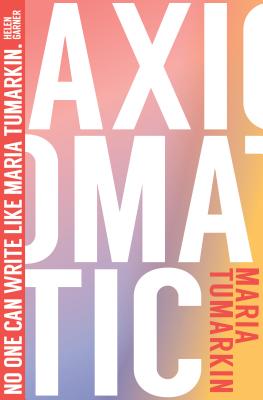
Maria Tumarkin, Axiomatic
(Sept. 3, Transit Books)
Maria Tumarkin’s long-awaited Axiomatic digs into powerful emotional territory and explores the complex sphere of influence between the past and the present. Along the way, Tumarkin explores questions of human relationships and some of the bleaker aspects of human nature.
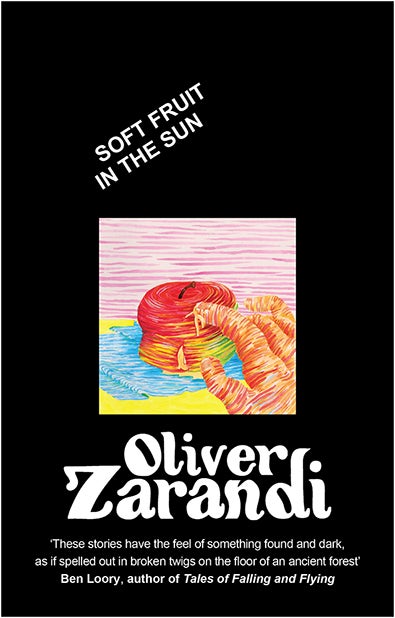
Oliver Zarandi, Soft Fruit in the Sun
(Sept. 5, Hexus Press)
You may have read some of his work here at Vol.1 Brooklyn; if so, you’re already familiar with Oliver Zarandi’s surreal and disquieting approach to prose. If not, his collection Soft Fruit in the Sun is a fine introduction to his style, which blends a humanistic approach with a penchant for the grotesque.

Jennifer Croft, Homesick
(Sept. 10, Unnamed Press)
You may have encountered Jennifer Croft’s work as a translator before now, but that’s far from her only literary talent. Homesick reveals her to be a fantastic writer in her own right, as she tells the story of two homeschooled sisters coming of age and discovering their own perspectives on the world.
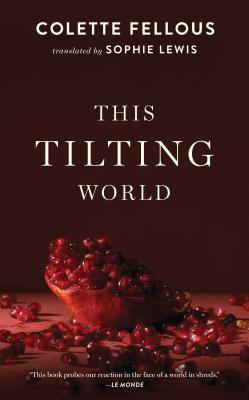
Colette Fellous, This Tilting World; translated by Sophie Lewis
(Sept. 10, Two Lines Press)
Newly available in translation, Colette Fellous’s This Tilting World touches on a host of French literary history as it explores the history of the Jewish community in Tunisia. Written with verve and an elegiac tone, Fellous’s book charts unexpected historical places and finds a deep emotional resonance.

Amy Long, Codependence
(Sept, 10, Cleveland State University Poetry Center)
Amy Long’s essay collection Codependence explores a host of deeply-felt topics, from discovering one’s voice as a writer to grappling with the addiction of a loved one. Long channels these powerful themes through a poetic approach to prose, creating a singular volume.
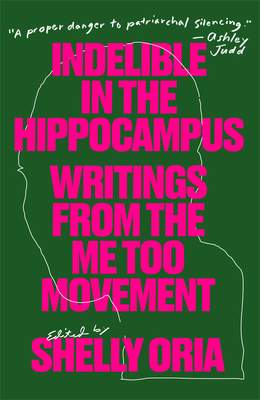
Shelly Oria, ed., Indelible in the Hippocampus: Writings From the Me Too Movement
(Sept. 10, McSweeneys)
This new anthology, edited by Shelly Oria, offers a host of perspectives on one of today’s most influential social movements. And the list of contributors includes a host of talented authors, including Samantha Hunt, Melissa Febos, Jolie Holland, and Kaitlyn Greenidge. Essential reading for those concerned with questions of gender and power.

Matthew Revert, Try Not to Think Bad Thoughts
(Sept. 10, CLASH Books)
We’ve long been impressed with the cover designs of Matthew Revert, which have graced many of our favorite books over the last few years. Now, we have the next logical step: a collection of his artwork. Revert is also a talented writer and musician; between this book and Jennifer Croft’s, it’s a good month for multidisciplinary folks on this list.

Sylvia Townsend Warner, The Corner That Held Them
(Sept. 10, NYRB Classics)
No two of Sylvia Townsend Warner’s books are the same—and that’s one of the unmitigated pleasures of encountering her work. The Corner That Held Them focuses on a convent in the 14th century; as Warner channels the quotidian into her prose, something extraordinary begins to arise from the page.

Brian Birnbaum, Emerald City
(Sept. 15, Animal Riot Press)
Brian Birnbaum’s novel Emerald City is one of a group of recent novels to use sports (in this case, college basketball) to wrestle with larger questions about American society. Along with that, he grapples with generational legacies and institutional corruption in a narrative that leaps across time and paints a vivid portrait of modern Seattle.

D. Harlan Wilson, The Psychotic Dr. Schreber
(Sept. 16, Stalking Horse Press)
D. Harlan Wilson’s fiction frequently revisits unsettling moments from history to bold effect. With his latest novel, he evokes one of Sigmund Freud’s most famous case histories. Wilson himself refers to it as “part speculative (anti)fiction, part (auto)biography, part theatre-of-the-absurd, part writing tutorial, part literary nonsense and criticism.” We are suitably intrigued.

Kevin Barry, Night Boat to Tangier
(Sept. 17, Doubleday)
After journeying to a near-future Ireland and revisiting John Lennon in the late 1970s, where do you go next? For Kevin Barry, you ponder travel. His latest book, Night Boat to Tangier, focuses on a pair of aging criminals waiting for the arrival of a boat which heralds a seismic change in their lives—and an alteration in their place in a shifting society.
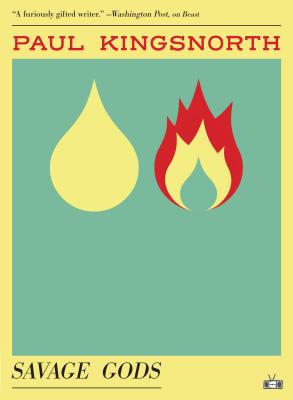
Paul Kingsnorth, Savage Gods
(Sept. 17, Two Dollar Radio)
Whether he’s delving into ecological questions or using fiction to exhume British history, Paul Kingsnorth’s work is never less than compelling. In Savage Gods, he draws upon his own life and explores the fluctuating relationship between writing and the external environment—and all of the contradictions and confusion that that can cause.
Follow Vol. 1 Brooklyn on Twitter, Facebook, and sign up for our mailing list.
